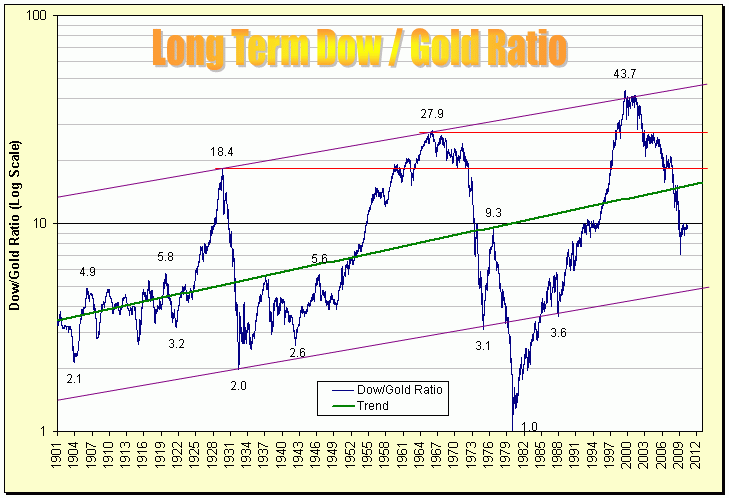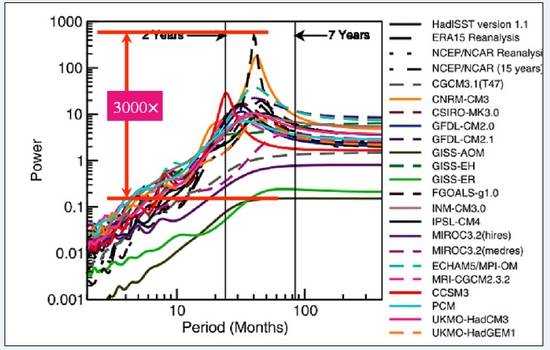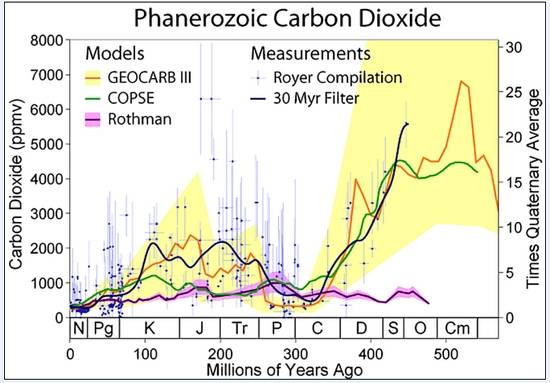Reading on a Saturday Morning
- Read more about Reading on a Saturday Morning
- Log in or register to post comments
To quote Bill Gross![]() on ratings agencies,
on ratings agencies,
"Their warnings were more than tardy when it came to the Enrons and the Worldcoms of ten years past, and most recently their blind faith in sovereign solvency has led to egregious excess in Greece and their southern neighbors.
The result has been the foisting of AAA ratings on an unsuspecting (and ignorant) investment public who bought the rating service Kool-Aid that housing prices could never really go down or that countries don’t go bankrupt.
Their quantitative models appeared to have a Mensa-like IQ of at least 160, but their common sense rating was closer to 60, resembling an idiot savant with a full command of the mathematics, but no idea of how to apply them."
And since we're on the subject of savants ...
Fred's Intelligent Bear![]() keeps a nice set of charts offering a more sober viewpoint than you'll get from CNBC.
keeps a nice set of charts offering a more sober viewpoint than you'll get from CNBC.
Here's the chart that makes me go all warm and fuzzy.
After yesterday's debacle it was the first thing I wanted to see this AM.
The Dow/Gold Ratio.
Up is good for Stocks, down is good for Gold.

I have for a long time now read people who read Richard Russell.
Bonehead!!!
He's well into his 80's now and his Dow Theory Letters![]() isn't cheap.
isn't cheap.
Still, the more I read him the more I wish I had been doing so all along.
"If I told you I was going to give you a large steel box for your kids,
and that box was not to be opened for fifty years,
would you rather I put three million in cash in that box,
or three million in diamonds or gold?"
Helluva question ain't it?
And since we were on the subject of Gold.
The Golden Rule as taught (although not necessarily practiced) by the world's great religions.
Imagine if the government decided to increase the number of minutes in an hour from 60 to 70.
You can hear policymakers congratulating themselves:
"People will work longer at the same pay. This will be a boon to productivity!"
Or if Washington increased the number of inches in a foot from 12 to 15:
"Home buyers will thus get more house for the same price and that will stimulate home buying!"
It's no more foolish than what we and other countries routinely do with our currencies.
Steve Forbes for forbes.com 4/21/2010
Here are two letters from the second week of April 2010.
The first from Professors Rees and Cicerone to the Financial Times in response to an editorial titled Cooler on Warming published April 5, 2010.
The second from Howard Hayden to the U. S. State Department dated April 10, 2010.
Apologies in advance for the volume of reading here as nobody hates long posts and small type more than I do.
But, it is worth the slog.
What’s happening to the climate is unprecedented
Published: April 9 2010 03:00
From Prof Martin Rees and Dr Ralph J. Cicerone.
Sir, We were stimulated by your editorial “Cooler on warming” (April 5). There has undoubtedly been a shift in public and media perceptions of climate change – a consequence of, at least in part, leaked e-mails from some climate scientists and the publication of errors in the fourth Intergovernmental Panel on Climate Change report.
However, as your editorial acknowledges, neither recent controversies, nor the recent cold weather, negate the consensus among scientists: something unprecedented is now happening. The concentration of carbon dioxide in the atmosphere is rising and climate change is occurring, both due to human actions. If we continue to depend heavily on fossil fuels, by mid-century CO 2 concentrations will reach double pre-industrial levels. Straightforward physics tells us that this rise is warming the planet. Calculations demonstrate that this effect is very likely responsible for the gradual warming observed over the past 30 years and that global temperatures will continue to rise – superimposing a warming on all the other effects that make climate fluctuate. Uncertainties in the future rate of this rise, stemming largely from the “feedback” effects on water vapour and clouds, are topics of current research.
It is the responsibility of scientific organisations like ours to present the public and politicians with a balanced assessment of the evidence – and, importantly, to indicate the level of confidence and the range of uncertainties attached to them.
Our two science academies have long contributed critical, objective and open reports on climate change. We intend to draw upon the efforts of leading scientists everywhere to make our future reports more accessible and valuable and, by fostering scientific research, we hope to do a better job of reducing inherent uncertainties. We must also promote best scientific practice, especially with regard to the sharing of data. But policymakers and the public must realise that, even if scientific uncertainties could be reduced to zero, formulating effective political responses would still be controversial and challenging. Our academies will provide the scientific backdrop for the political and business leaders who must create effective policies to steer the world toward a low-carbon economy.
Martin Rees,
President of the Royal Society
Ralph J Cicerone,
President of the US National Academy of Sciences
HOWARD HAYDEN
Climate Realists
April 27, 2010
To: Department of State
Date: 23 April 2010
Re: U.S. Climate Action Report 2010. 5th ed.
Many states around the nation are trying to enact laws to restrict carbon emissions, and industries too numerous to mention have begun making changes hoping to be fully prepared to comply with laws they haven’t seen yet. Congress is considering laws in hopes that they can avoid having EPA impose its own version of CO2 restrictions.
Before jumping on this bandwagon, we should be certain that we understand the science. U.S. Climate Action Report 2010, 5th ed. might be understood by some Americans to be the definitive word; however nary a word in the report even pretends to establish a link between CO2 and putative global warming show that the increase in CO2 concentration is due to human activity instead of natural causes (such as natural warming of the oceans) show that either an increase in CO2 concentration or an increase in temperature is, on balance, bad (or worse than laws restricting CO2 emissions) or
do any science whatsoever.
Despite screams to the contrary, a vast number of scientists dispute the findings of the IPCC. Perhaps the Department of State believes that “the science is settled.” If so, please let us know which of the two dozen models—see Fig. 1 showing a slight disagreement by a factor of 3000 among the models—settled the science so that all of the others can be thrown into the dustbin of failed science and de-funded.

Like an ant crawling out an anthill and concluding that the world is made of 1-millimeter rocks, global-warming activists have looked at the last three-millionths of one percent of the earth’s climate history and made brash conclusions about climate, and especially their understanding of it. They wax eloquent about results from computer models. In the longer view—see Fig. 2—we see that the last million years or so are rather anomalous. The highest CO2 concentrations during the last many ice ages and interglacials are lower than at any other time for the last 300 million years. The dinosaurs lived when CO2 concentrations were 5 to 20 times as high as now. Indeed, such large creatures could not survive without the very verdant conditions afforded by adequate plant food known as carbon dioxide.

Figure 2: Carbon dioxide concentrations for the last 600 million years. Points represent actual measurements; lines represent computerized smoothings. The most recent million years is in a very narrow strip to the left of the graph, with concentrations less than 400 ppmv. The right-hand scale is in multiples of quaternary average.
That long history teaches us something else. We have all been in an auditorium when somebody was testing out the sound system and there was a sudden screech owing to a “tipping point” wherein the amplified sound at the microphone was loud enough to be picked up and made louder yet. If the people did not act immediately to cut the gain of the amplifier, and everybody just left the room and locked the door, the screech would persist forever if the power remained on. This behavior, often called “running to the rail” by electronics folks, is characteristic of all positive feedback systems. Once you reach the tipping point, there is no return. If high levels of CO2 were to cause the earth to reach a tipping point, it would have done so a long time ago, and we wouldn’t be here talking about it.
All in all, there is a best policy to direct toward climate change, and that is to have the courage to do nothing. We humans have precious little to do with climate. When and where did you read anything from climate alarmists that said that humans are responsible for about 3% of all CO2 emissions? When and where did you read anything from climate alarmists that said that warming oceans emit CO2? When and where did the climate alarmists tell you about CO2 levels that were up to 20 times current levels when dinosaurs roamed the earth? When and where did alarmists tell you that the conditions they openly worry about have repeatedly happened without turning the earth into an oven?
Nowhere and never, did you say? Perhaps you should consider that you have been deliberately misled.
Cheers,
Howard Hayden
The Energy Advocate
Vales Lake Publishing, LLC

![]() Charles Sizemore in the HS Dent Forecast
Charles Sizemore in the HS Dent Forecast![]() offers the following thought:
offers the following thought:
Steven Rosefielde and D.Quinn Mills in their book, Masters of Illusion: American Leadership in the Media Age![]() analyze what they call the “conflict of moralities.”
analyze what they call the “conflict of moralities.”
They see history as a continuous cycle of conflict between “puritanism”
(defined as being patriarchical, religious, and moralistic)
and “cosmopolitanism”
(defined as being egalitarian, tolerant, and amoral).
In the authors’ opinion:
Abraham was puritan; the Mesopotamians and the Egyptians were cosmopolitan.
The Hebrews were puritan; the Philistines were cosmopolitan.
The Persians were puritan; the Babylonians were cosmopolitan.
The Persians became cosmopolitan; the Greeks were puritan.
The Greeks became cosmopolitan; the Romans were puritan.
The Romans became cosmopolitan; the Germanic tribes were puritan.
The Byzantines were cosmopolitan; the Arabs were puritan.
The Chinese were cosmopolitan; the Mongols were puritan.
The Catholic Church was cosmopolitan; the Protestants were puritan.
The Cavaliers were cosmopolitan; the Roundheads were puritan.
The English were cosmopolitan; the Americans were puritan.
Today, America is cosmopolitan; its Islamic radical antagonists are puritan.
He goes on to say that he's not all that concerned about Islam, it's them no-good Russians that have him worried.
"To the authors’ list, I add that the West was cosmopolitan during the Cold War and the Communist bloc was puritan.
It appears that all successful puritan societies evolve into cosmopolitan societies. The key here is “successful.”
The Communists were not successful and never evolved into cosmopolitans.
They simply disintegrated, as in Russia, or rebranded themselves as capitalists, as in China.
So, the puritans do not always win, and I certainly would not expect to see the Islamic radicals win this time.
They might make our lives difficult, but as I wrote earlier, they present no existential threat to America or the West.
As the authors tell us, America’s most immediate challenge is the war on terror, but it is by no stretch the most important.
The biggest threat and most important challenge remains what it has been for more than 60 years: to avoid a nuclear exchange between great powers.
With the nuclear weapons antiproliferation regime in tatters, Russia desperately trying to hold on to its past glories, and China rapidly expanding its military and economic might, this threat is as significant now as at any time in history."